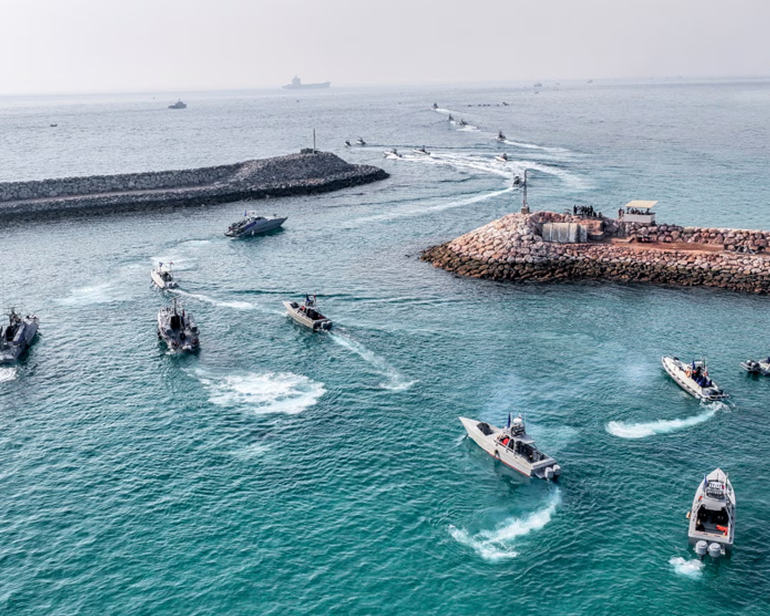
Speedboats belonging to the Iranian Revolutionary Guards in the Gulf. Photograph: AP
US President Donald Trump is expected to spark international controversy during his upcoming visit to Saudi Arabia. He reportedly plans to announce a change in terminology: from the “Persian Gulf” to the “Arabian Gulf” or “Gulf of Arabia.” This symbolic move has already triggered strong backlash from Iranian leaders.
Iran Reacts with Fury
Iranian officials are furious at the suggestion. They view the proposed name change as a deliberate insult. Diplomats warn that even Iranians opposed to their own regime would unite against Trump on this issue.
“This would be a rare moment of unity among all Iranians,” said one diplomat. “That’s nearly impossible to achieve otherwise.”
Iran’s Foreign Minister, Abbas Araghchi, dismissed the move as political provocation. He labeled the proposal absurd and potentially dangerous to diplomatic efforts.
A Deep-Rooted Name in History
Iran insists the term “Persian Gulf” is historically accurate. The name dates back to Roman times and has been widely accepted since the 16th century. For Iran, the name honors their ancient Persian heritage.
Araghchi emphasized that Iran never protested the names of surrounding waters like the Arabian Sea or Red Sea. “But changing the Persian Gulf name is a hostile act,” he stated. “It insults every Iranian worldwide.”
No Legal Grounds for Change
Iran’s stance is firm. The proposed name shift holds no legal or geographical legitimacy, officials say. It’s seen solely as a political gesture to please Arab allies.
Iran argues that such an action won’t alter global recognition of the term “Persian Gulf.” Instead, it may deepen distrust and inflame tensions during fragile nuclear talks.
Arab Push Meets Iranian Resistance
Some Arab nations have long advocated for renaming the Gulf. They favor terms that emphasize Arab identity and influence in the region. However, Iran continues to defend its historical claim, resisting these political pressures.
In 2012, Iran even threatened to sue Google for omitting the name “Persian Gulf” on its maps. The issue remains a sensitive one for Iranians, who see it as a matter of national dignity.
Trump’s Political Gamble
Sources close to Trump claim the name change is a strategic move. It’s intended as a symbolic gift to Arab leaders, particularly in light of growing US-Israel-Arab cooperation.
This shift follows a similar suggestion by Trump to rename the Gulf of Mexico as the “Gulf of America” — another example of his provocative style of diplomacy.
Nuclear Deal Talks at Risk
European diplomats are now scrambling to manage the fallout. They’re urging Iran to stay calm and avoid walking away from nuclear negotiations.
Hardline factions in Iran could use Trump’s plan as proof the US can’t be trusted. This could derail progress toward a long-awaited agreement.
Despite rising tensions, JD Vance, US Vice President, offered hope at a recent security summit. “So far, so good,” he said of the nuclear talks.
US Will Allow Civil Nuclear Use
Vance clarified that the US doesn’t oppose Iran’s access to civil nuclear energy. However, any program allowing enrichment toward weapons is off-limits.
There are signs that the US may accept limited uranium enrichment under strict UN supervision. This would be a significant concession and could help reintegrate Iran into the global economy.
Old Debate, New Trouble
This is not the first time US officials have sparked outrage over naming the Gulf. But Trump’s latest move could prove particularly damaging amid delicate diplomacy.
As talks continue, all eyes are now on how Iran responds — and whether diplomacy can withstand the shock.















